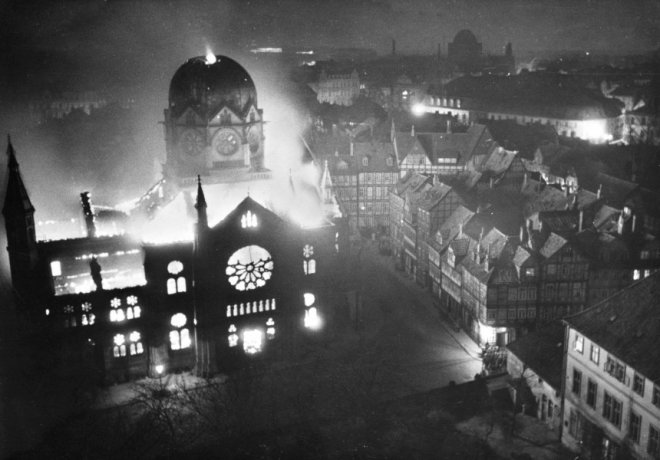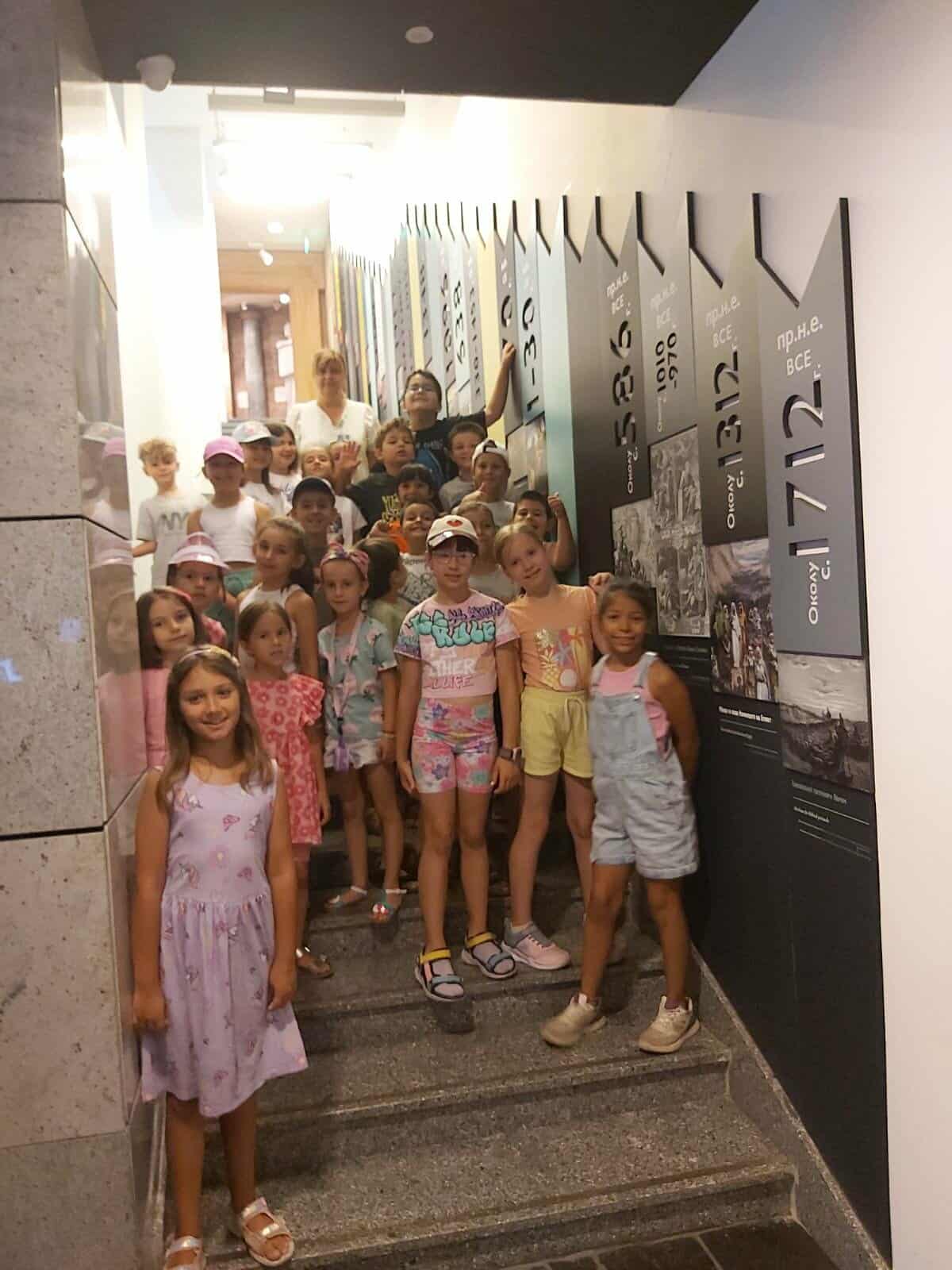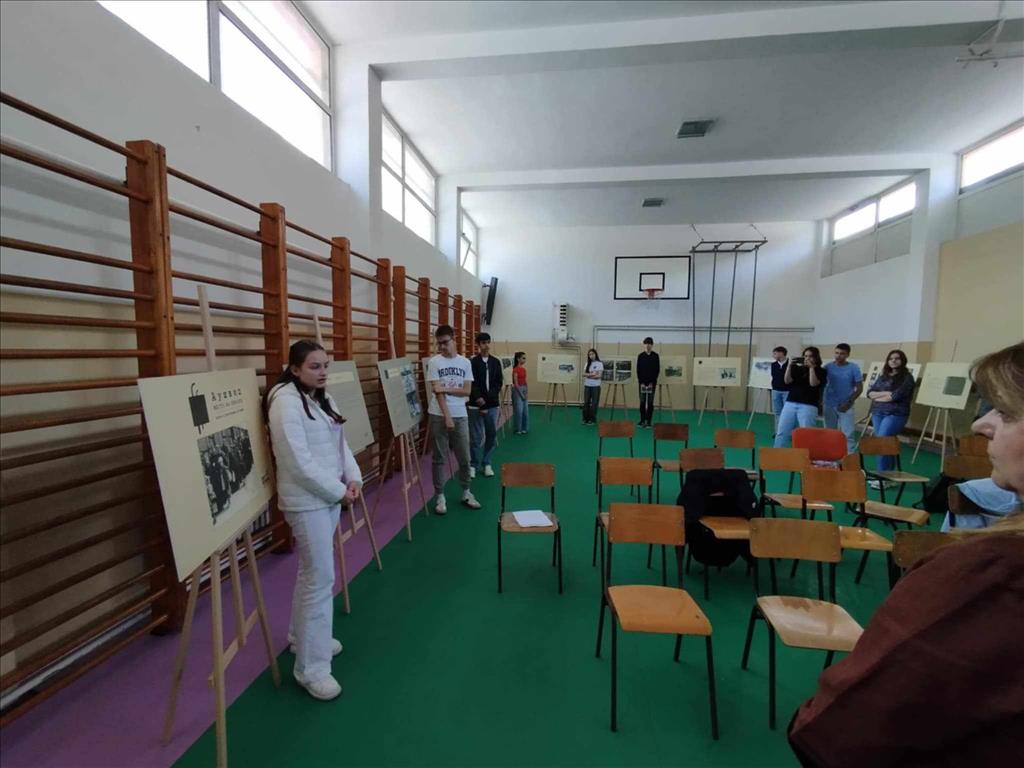Kristallnacht

The Kristallnacht or the Night of the Broken Glass was a mass pogrom against the Jews all over Germany and parts of Austria that happened on 9 and 10 November 1938. Jewish homes were raided in several German cities, including 8,000 Jewish shops, by civilians and members of the SA, who demolished Jewish buildings with mallets, leaving streets covered in broken windows, hence the name "Night of the Broken Glass". Many Jews were beaten to death and 30,000 Jewish men were taken to concentration camps, mostly in Dachau, Buchenwald, and Sachsenhausen.
More than 1,668 synagogues and places of worship were destroyed, including many of the Jewish cemeteries. Some of the destroyed synagogues were centuries old. Tombstones were demolished and graves vandalized. Fires were set in which prayer books, scrolls, artistic and philosophical texts were thrown, and some buildings were burned or demolished beyond recognition.
After this night, the Jewish community was fined 10 billion marks, and the repair of the windows cost 40 million marks. Many in Berlin were ashamed of the pogrom, and some offered help.
After the pogrom, the German Jews were persecuted and although they were already robbed, new economic losses were inflicted on them. They were forced to pay a collective fine of one billion marks for the murder of Fom Rat, a punishment that was carried out by confiscating 20% of the property of the Jews in the country. A sum of six million marks in property damage insurance was to be paid to the government.
The number of Jewish refugees increased, so that in the ten months that followed after the Night of the Broken Glass more than 115,000 Jews emigrated from the Reich, most of them to other European countries, the United States and Palestine, and at least 14,000 to Shanghai, China. As part of government policy, the Nazis appropriated the property of those who fled. Much of the wreckage looted during Night of the Broken Glass was dumped near Brandenburg.
The reactions of the non-Jews in Germany after the Night of the Broken Glass were different. Many observed quietly and the firefighters were only paying attention on the fire not to spread to nearby buildings.
The Night of the Broken Glass provoked an international reaction, discrediting the Nazi movement in Europe and North America. Many newspapers published condemnation. The United States has recalled its ambassador, although it did not cut off the diplomatic relations and other governments did cut off the diplomatic relations with Germany. The UK Government approved a program for refugee children. The global opinion sharply turned against the Nazi regime and some politicians called for war. On 6 December 1938, William Cooper, an Aboriginal political activist, led a march through Melbourne to the German consulate to leave a petition condemning the brutal persecution of Jews by the Nazi government in Germany, which German consulate officials refused to accept.
Share: << Back
Any help from you is more than welcome.
Donate to continue with the successful work and education




